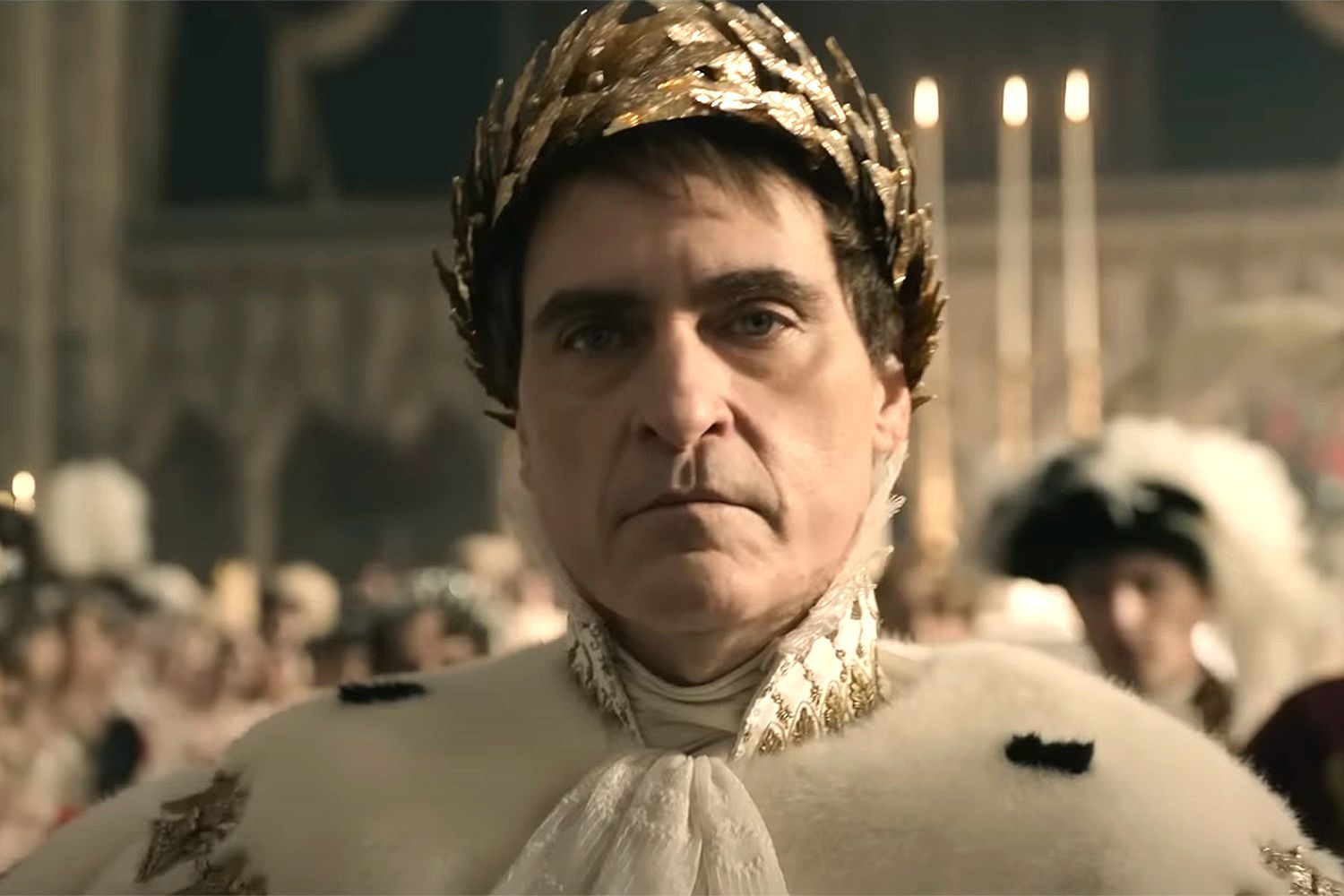Joaquin Phoenix dressed in a navy habit à la française – the popular men’s wear of the time– shouts an order and with it, volleys of cannon fire rips through the air, destroying the Great Pyramid’s capstone.
Riddley Scott’s latest feature, Napoleon, has made quite the splash online, particularly through a scene now going viral, for its historical inaccuracy.
While Napoleon Bonaparte led a triumphant battle near the Pyramids of Giza, there is no historical evidence supporting French invaders using artillery against the pyramids nor attributing damage to the Sphinx’s nose.
“I don’t know if he did that,” Scott told The Times of London amid online criticism. “But it was a fast way of saying he took Egypt.”
The film chronicles the controversial Napoleon Bonaparte, who ascended as Napoleon I, surging through military conquests post the 1789 French Revolution. His ambition clashed with Britain, culminating in the Napoleonic Wars.

Before leading the French army to triumph at the Battle of the Pyramids on July 21, 1798, Napoleon Bonaparte motivated his troops through his famed speech, by pointing to the distant pyramids and declaring, “Soldiers, forty centuries look down upon you.”
Napoleon’s interaction with the pyramids during his Egyptian campaign gave rise to at least three myths about him. One of them inspired the scene depicted in Scott’s 28th feature film; a second was that Bonaparte blew off the Sphinx’s nose. Research, however, was likely chiseled off long before Napoleon’s era.
In reality, the French campaign in Egypt, spanning from 1798 to 1801, was primarily motivated by Napoleon’s colonial ambitions and a strategic aim to counter British influence. In an unconventional move, Napoleon not only assembled an army of approximately 50,000 soldiers but also extended invitations to over 160 scholars across various disciplines, including botany, geology, and the humanities, to accompany the invasion.
These scholars played a crucial role in documenting the cultural and natural aspects of Egypt, culminating in the significant 1809 publication, Description de l’Égypte. This compilation included detailed entries about the Giza pyramid complex, which confirms that Bonaparte and his army have indeed paid a visit to the Pyramids, but not so much to destroy as to study.
In their quest to document Egypt’s extensive archaeological heritage, the French scholars appropriated numerous significant artefacts, among them the Rosetta Stone—a rock inscribed with three languages that played a pivotal role in deciphering ancient Egyptian hieroglyphs. When the French hold on Egypt collapsed in 1801, the stone and various other treasures fell into British hands. By that time, Napoleon had fled to France.
Post-campaign, tales of Egypt’s cultural marvels spread throughout Europe, sparking a renewed global fascination known as Egyptomania. This intense interest in Egyptian antiquities fueled centuries of exploration, excavation, and exploitation of the region’s vast reservoir of relics. Since Napoleon’s invasion, a multitude of artefacts has been removed from Egypt by prospectors and traders, often through clandestine and outright criminal means.
To this day, Egypt is fighting a gruesome diplomatic battle for the repatriation of these relics. Perhaps, a movie on the level of Napoleon, despite its shortcomings, could shed light on the colonial past of European nations and prompt support for the Egyptian cause.
“From what we know, Napoleon held the Sphinx and the pyramids in high esteem and used them as a means of urging his troops to greater glory,” Salima Ikram, a professor of Egyptology at the American University in Cairo, told the New York Times. “He definitely did not take potshots at them.”







Comment (1)
[…] post Napoleon Did Not Shoot the Pyramids As Ridley Scott Might Have You Believe first appeared on Egyptian […]